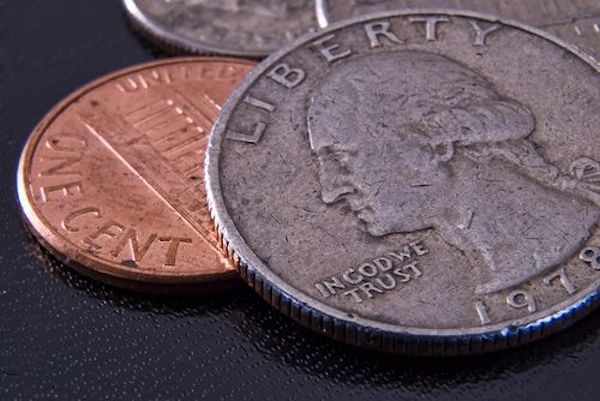Categories: General Information
Crypto Coin vs Token - Understanding the Difference and Choosing the Right Investment
Discover the differences between crypto coin vs token, and explore the benefits of trading each. Learn which option may suit your investment goals best.
In the ever-evolving world of cryptocurrencies, two terms frequently arise: coins and tokens. Understanding the distinction between these two forms of digital assets is crucial for anyone looking to invest in the crypto market. In this blog post, we will explore the definitions of coins and tokens, highlight their differences, and discuss the benefits of trading each. By the end, you will be better equipped to make informed decisions when it comes to choosing between crypto coin vs token.
Table of Contents
What Is a Coin?
Cryptocurrency coins, often referred to as "native" or "mainnet" coins, are digital assets that operate independently on their own blockchain networks. Examples of popular coins include Bitcoin (BTC), Ethereum (ETH), and Litecoin (LTC). Coins are generally used as a medium of exchange and store of value, with the primary purpose of facilitating transactions within their respective networks. They usually possess their own dedicated blockchain and infrastructure.

What Is a Token?
Cryptocurrency tokens, on the other hand, are built on existing blockchain platforms such as Ethereum or Binance Smart Chain. Tokens represent digital assets or utilities and are often used to power decentralized applications (dApps) or represent ownership in a specific project or ecosystem. Some well-known tokens include Binance Coin (BNB), Chainlink (LINK), and Uniswap (UNI). Tokens rely on the underlying blockchain infrastructure of their host platform for their existence and functionality.
Crypto Coin vs Token: The Difference
The key distinction between coins and tokens lies in their infrastructure and purpose. Coins operate independently with their own blockchain networks, while tokens rely on existing blockchain platforms. Coins are primarily used as a means of exchange and store of value, while tokens serve various purposes such as utility within dApps, representing assets, or even enabling participation in crowdfunding events through Initial Coin Offerings (ICOs) or Initial Exchange Offerings (IEOs).

What are the Benefits of Trading Cryptocurrency Coins?
Trading cryptocurrency coins can offer several benefits to investors. First and foremost, coins often have a longer track record, established reputation, and wider adoption compared to tokens. This can translate into greater stability and liquidity, making it easier to enter or exit positions. Additionally, coins are typically listed on more exchanges, allowing for enhanced accessibility and trading opportunities. Moreover, coins tend to have a well-defined use case, reinforcing their value proposition and providing a clearer investment thesis.
What are the Benefits of Trading Cryptocurrency Tokens?
Trading cryptocurrency tokens presents its own set of advantages. Tokens often leverage the infrastructure and security of established blockchain platforms, which can contribute to their credibility and stability. Furthermore, tokens can unlock opportunities for early-stage investment in promising projects or ecosystems. Tokens associated with successful projects may experience substantial growth, potentially yielding higher returns on investment compared to well-established coins. Additionally, tokens often have a more diverse range of applications, including staking, governance, and access to exclusive features within decentralized platforms.

Which Should You Trade? Cryptocurrency Coin or Token?
Deciding whether to trade cryptocurrency coins or tokens ultimately depends on your investment goals, risk tolerance, and time horizon. If you prioritize stability, liquidity, and a well-established track record, coins may be the preferred choice. On the other hand, if you seek higher growth potential, early-stage investment opportunities, and a wider array of utility options, tokens might align better with your objectives. It is important to conduct thorough research, evaluate market trends, and consider professional advice before making any investment decisions.
How to store coins and tokens?
Storing coins and tokens securely is crucial to safeguard your cryptocurrency holdings from theft, loss, or unauthorized access. There are several storage options available, each with its level of security and convenience. Here are the main methods for storing coins and tokens:
1. Cryptocurrency Wallets:
- Hardware Wallets: Hardware wallets are physical devices designed to store private keys offline. They offer a high level of security and are considered one of the safest options for long-term storage. Popular hardware wallet brands include Ledger, Trezor, and KeepKey.
- Software Wallets: Software wallets come in different forms, such as desktop wallets, mobile wallets, and web wallets. Some wallets, like MetaMask and Trust Wallet, support a wide range of tokens. However, software wallets are connected to the internet, making them more vulnerable to hacking compared to hardware wallets.
2. Paper Wallets:
- A paper wallet involves printing your private keys or seed phrase on a physical piece of paper and keeping it in a secure location. Paper wallets are offline and immune to online threats, but they require careful handling to prevent loss or damage.
3. Cold Storage:
- Cold storage refers to any method of storing cryptocurrencies offline, away from internet-connected devices. Hardware wallets and paper wallets are examples of cold storage solutions.
4. Hot Wallets:
- Hot wallets are wallets that are connected to the internet. They provide quick access to your funds for easy spending and trading. However, since they are online, they are more vulnerable to hacking and cyberattacks compared to cold storage solutions.
5. Decentralized Exchanges (DEX) Wallets:
- Some decentralized exchanges allow users to hold their funds directly in their DEX wallet. While this may offer more control over your assets, it's essential to research the DEX's security features and risks before storing significant amounts of funds.
6. Custodial Exchanges:
- If you store your coins and tokens on a centralized exchange, they are held in custody by the exchange. This may be convenient for trading but comes with counterparty risk, as you do not control the private keys. Avoid leaving large amounts of funds on exchanges for extended periods.
Regardless of the storage method you choose, follow these best practices:
- - Keep your private keys or seed phrase secure and private. Never share them with anyone.
- - Use strong, unique passwords for your wallets and accounts.
- - Enable two-factor authentication (2FA) wherever possible to add an extra layer of security.
- - Regularly update your wallet software and keep your devices free of malware and viruses.
- - Backup your wallet's seed phrase or private keys and store them in a safe and separate location.
Remember that the security of your cryptocurrency holdings ultimately depends on your actions and choices. Be vigilant, stay informed about security best practices, and exercise caution to protect your assets effectively.
Conclusion
Understanding the differences between crypto coin vs token is essential for navigating the complex world of digital assets. Coins operate independently on dedicated blockchain networks, while tokens rely on existing platforms. Both coins and tokens offer unique benefits and investment opportunities. By assessing your investment goals and conducting thorough research, you can make informed decisions regarding whether to trade coins or tokens or even create a balanced portfolio that includes both. Remember, the cryptocurrency market is highly dynamic, so staying informed and adapting your investment strategy accordingly is key to success in this evolving landscape. Follow Unicorn Ultra for more blockchain information.
